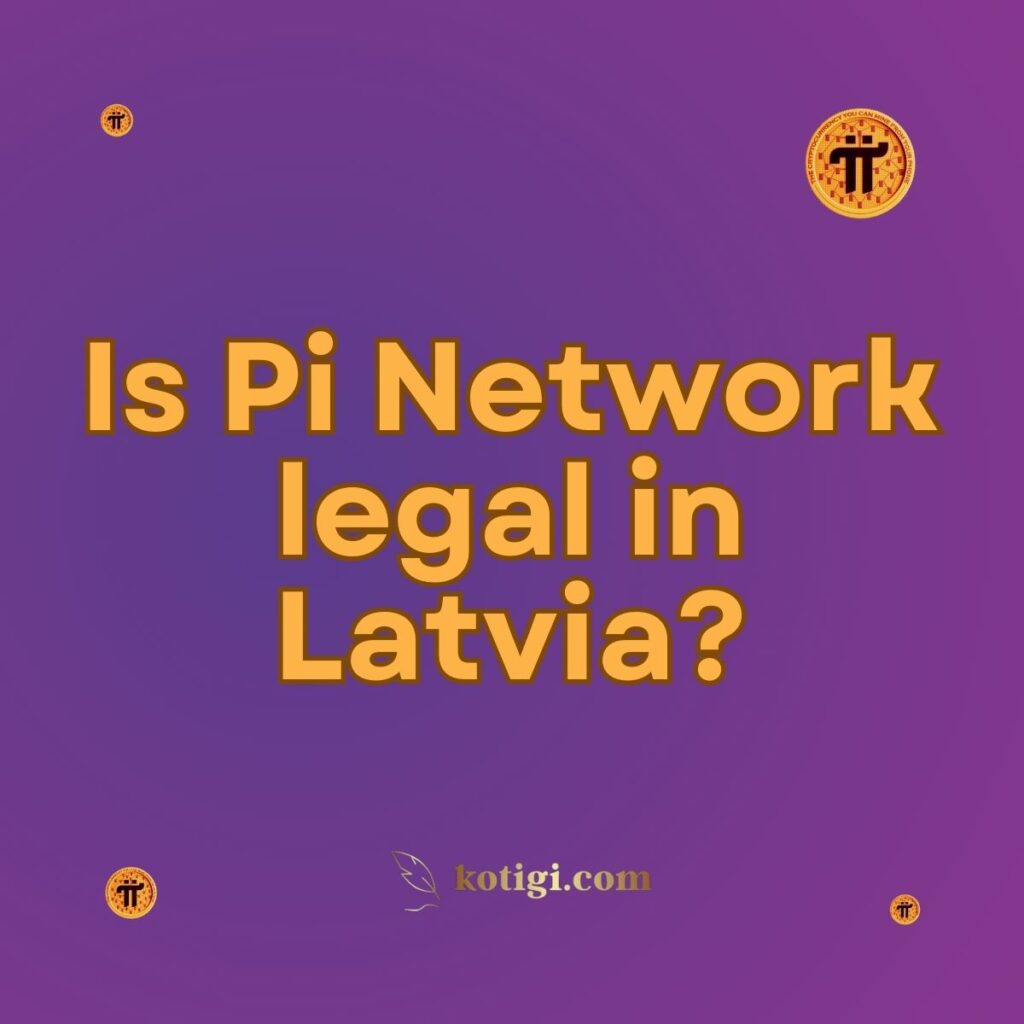
Is Pi Network legal in Latvia?
Yes, Pi Network is legal in Latvia. While there are no specific regulations targeting Pi Network, the use of cryptocurrencies is allowed under Latvian law. However, users should adhere to tax regulations and anti-money laundering (AML) procedures applicable to digital assets in the country.
Introduction
Cryptocurrencies have gained significant popularity around the world, including in Latvia. As Pi Network continues to grow its user base globally, many individuals in Latvia are curious about its legal standing. Is Pi Network legal in Latvia? In this article, we will explore the current legal framework for cryptocurrencies in Latvia and how it applies to Pi Network.
Cryptocurrency Regulations in Latvia
Latvia does not have a comprehensive regulatory framework for cryptocurrencies, but it has issued guidelines on how digital assets should be treated. The country’s approach to cryptocurrencies is similar to that of many European Union (EU) member states, where cryptocurrencies are legal but regulated under specific financial laws.
Latvia’s Stance on Cryptocurrencies
The Latvian government has not banned the use of cryptocurrencies. However, it considers digital assets like Pi tokens as financial instruments, subject to the country’s financial and tax regulations. This legal status allows users to trade, mine, and own cryptocurrencies like Pi, but they must comply with applicable regulations.
European Union Influence on Cryptocurrency Regulations
As a member of the European Union, Latvia aligns its policies with EU directives concerning financial technologies, including cryptocurrencies. EU regulations, such as the General Data Protection Regulation (GDPR) and anti-money laundering directives, influence how cryptocurrencies are handled in Latvia. Therefore, Pi Network users in Latvia must ensure they follow these broader European guidelines.
Tax Implications for Cryptocurrency Users
Latvian tax authorities treat cryptocurrencies as assets. This means that any income earned from trading, selling, or using cryptocurrencies, including Pi tokens, is subject to taxation. It is important for Pi Network users in Latvia to declare their cryptocurrency earnings to the tax authorities to avoid penalties for non-compliance.
Pi Network’s Operations in Latvia
Pi Network operates legally in Latvia, following the country’s general cryptocurrency regulations. The platform’s decentralized nature and emphasis on mobile mining make it an appealing choice for users looking to get involved in the crypto space with minimal technical barriers. However, users must be aware of key legal considerations to ensure they remain compliant.
Growing User Base in Latvia
Latvia has seen growing interest in Pi Network, with a rising number of users mining Pi tokens on their smartphones. The simplicity of Pi’s mining mechanism has attracted a diverse audience in Latvia, from casual users to more experienced cryptocurrency enthusiasts. This growth reflects the country’s increasing engagement with the digital economy.
Compliance with Local Regulations
Pi Network users in Latvia must comply with local financial regulations, particularly concerning AML and KYC (Know Your Customer) procedures. Pi Network has its own KYC process, which is crucial for ensuring that only legitimate users participate in its ecosystem. This process aligns with Latvia’s regulations designed to combat money laundering and other illicit activities.
Legal Considerations for Pi Network Users
Although Pi Network is legal in Latvia, there are several legal considerations that users must be mindful of to avoid any potential issues. These include compliance with tax laws, data protection regulations, and the evolving legal framework surrounding cryptocurrencies.
Anti-Money Laundering (AML) Compliance
Latvia has strict anti-money laundering regulations, and Pi Network users must comply with these laws. Pi Network’s built-in KYC process helps ensure that users are verified and that illegal activities such as money laundering are prevented. Latvian users should ensure that their accounts are fully verified to remain compliant with local laws.
Data Protection Laws
As part of the European Union, Latvia enforces the General Data Protection Regulation (GDPR), which governs how personal data is collected, processed, and stored. Pi Network collects personal information during the KYC process, and users should ensure that the platform complies with GDPR standards to protect their data.
Tax Obligations
As previously mentioned, cryptocurrencies are treated as assets in Latvia, and any profits derived from trading or selling Pi tokens are taxable. Latvian users must keep detailed records of their transactions and report them to the tax authorities. Failing to do so could result in penalties or legal action.
Pi Network’s Future in Latvia
As cryptocurrencies become more mainstream in Latvia, the government may introduce new regulations or update existing ones. While Pi Network is currently operating legally, it is essential for users to stay informed about any changes that might affect their use of the platform.
Potential Regulatory Changes
Like many other countries, Latvia is still developing its approach to cryptocurrencies. In the future, the government may introduce more specific regulations targeting digital currencies and blockchain-based platforms like Pi Network. Users should stay updated on any legislative changes to ensure they remain compliant with the law.
Integration with Financial Institutions
As Pi Network continues to grow, there may be opportunities for integration with traditional financial institutions in Latvia. This could potentially enhance the legitimacy of the platform and create more opportunities for users to exchange their Pi tokens for goods and services within the country’s financial ecosystem.
Comparing Pi Network’s Legality in Other Countries
Latvia’s approach to cryptocurrency regulation is similar to that of other EU member states, but how does it compare to non-EU countries? Understanding the legal landscape in different countries provides a broader perspective on Pi Network’s global operations.
Cryptocurrencies in Estonia
Estonia, another Baltic state, is known for its progressive stance on cryptocurrencies. The country has embraced digital assets and developed a favorable regulatory environment. Like Latvia, Estonia ensures that users comply with AML and tax regulations, making it another favorable location for Pi Network operations.
Cryptocurrencies in Russia
In contrast to the Baltic states, Russia has a more complex relationship with cryptocurrencies. While not outright banned, cryptocurrencies like Pi Network face more regulatory scrutiny, with the government imposing stricter controls. Latvian Pi Network users enjoy a more favorable environment compared to their Russian counterparts.
Conclusion
In conclusion, Pi Network is legal in Latvia, but users must comply with local regulations regarding taxation, anti-money laundering, and data protection. As the cryptocurrency landscape continues to evolve, Latvian users should stay informed about any changes to the legal framework that might impact their use of Pi Network. By adhering to local laws, Pi Network users in Latvia can continue to enjoy the benefits of the platform while remaining compliant with the country’s regulatory requirements.
Key Takeaways
- Pi Network is legal in Latvia, and users can participate in the platform as long as they comply with local regulations.
- Cryptocurrency earnings are taxable in Latvia, and users must report any profits from trading or selling Pi tokens.
- Anti-money laundering (AML) and Know Your Customer (KYC) compliance is essential for Pi Network users to ensure they meet Latvian regulatory requirements.
- Latvian users must adhere to the General Data Protection Regulation (GDPR), which governs how personal information is handled during the KYC process.
- The legal landscape for cryptocurrencies in Latvia is evolving, and Pi Network users should stay informed about any regulatory changes that may affect them.





